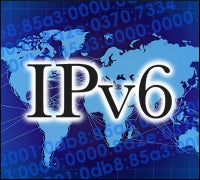 |
Few doubt that the smart grid — the plan to upgrade the nation’s electrical networks, backed by supporters including politicians, environmental groups and tech industry leaders — is anything less than an ambitious undertaking.
But it’s also an opportunity to improve the nation’s IPv6 adoption, according to Cisco (NASDAQ: CSCO). That’s because the networking giant sees a successful smart grid requiring end-to-end security and Internet Protocol as its common transport.
Cisco today unveiled plans to expand its own smart grid push, with new efforts to help standardize technologies and build a vendor ecosystem for solution delivery. In combination with the enablement technologies, Cisco is now also gearing up smart grid security services and solutions in an effort to help secure the electrical system.
There’s a lot at stake in the market for smart grid solutions. Cisco has estimated the market to be worth as much as $20 billion a year. Security is also now top of mind as the Department of Homeland Security (DHS) is now investigating a report into potential threats to the West Coast power grid.
“As utilities are looking to build out smart grid, it’s more effective to agree on a common protocol across the board as opposed to trying intermix different ones,” Marie Hattar, Cisco’s vice president of network systems and security solutions marketing, told InternetNews.com. “In many ways, this is like the early days of the Internet where we ultimately settled on IP. We see IP as the scalable protocol for smart grid and we’re working with a variety of vendors to advocate this and make this the key protocol of choice.”
And there’s likely to be subsidiary benefits to the smart grid, like furthering the cause of IPv6
Today, most Internet users have an IPv4
IPv6, the successor technology to IPv4, has a 128-bit address space, enabling it to handle far more addresses — though, to date, adoption has been slow.
As Cisco sees it, the smart grid could well prove to be a solid use case and a driver for IPv6 adoption.
For example, with utilities adopting IP-enabled metering for thousands of homes connected to the network, there could be an issue with addressing over IPv4. On IPv6, thanks to its plentiful address availability, there are no addressing issues.
“IPv6 is an interesting discussion and one that occupies a lot of bandwidth at Cisco,” Hattar said. “Some people say that for smaller deployments, we could get away with IPv4, but the smart grid has a number of parts.”
“The point is that if you’re looking to build this [smart grid] out, why not build it out on the scalable protocol from the get-go?”
Security
Building a scalable IP-based addressing system into the smart grid isn’t Cisco’s only focus at the moment.
Instead, security of the smart grid is another topic that has been top of mind lately. At the Black Hat security conference in July, a security researcher detailed security vulnerabilities in smart grid meters.
“If you think about hacking into a smart meter, it’s like hacking into your TV’s remote control — you still get your TV,” Hattar said. “The meters are a reporting mechanism but it’s not going to affect the electrical system.”
Still, Hattar added that smart meter vendors are concerned about security and Cisco will work with them.
“A key part is to build out an end-to-end framework that is secure,” Hattar said. “A lot has to do with isolation and not exposing the grid to points of entry that are hackable.”


